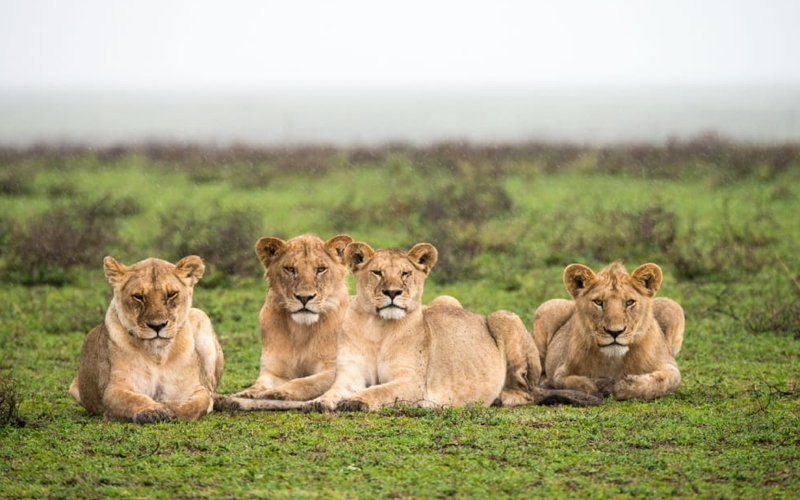Tanzania Safari Photography in 2025
Tanzania, with its breathtaking landscapes, abundant wildlife, and iconic parks, is a paradise for wildlife photographers. Whether you’re an amateur capturing moments for your travel album or a professional seeking award-winning shots, Tanzania’s vast wilderness offers unparalleled opportunities.
In 2025, safari photography is evolving with new trends, advanced equipment, and innovative techniques, making it the perfect year to embark on a photographic adventure. Let’s explore the best spots for capturing wildlife in Tanzania and tips to make the most of your photographic safari.
Why Tanzania is a Photographer’s Paradise
Tanzania is home to diverse ecosystems, ranging from savannahs and woodlands to lakes and volcanic craters. This variety ensures photographers can capture everything from predators stalking prey to mesmerizing sunsets over endless plains.
With parks like the Serengeti, Ngorongoro Crater, and Tarangire, the country promises a unique canvas for every click.
Best Photography Spots in Tanzania for 2025
1. Serengeti National Park: The Great Migration
The Serengeti National Park is synonymous with wildlife photography. The annual Great Migration, featuring over a million wildebeests, zebras, and gazelles, offers dramatic scenes of river crossings and predator-prey interactions.
Highlights:
- Capture thrilling Mara River crossings.
- Frame iconic predators like lions and cheetahs in action.
- Take advantage of golden hour for sweeping shots of the endless plains.
2. Ngorongoro Crater: A Natural Amphitheater
This UNESCO World Heritage Site is a dream for photographers. The crater’s unique landscape and dense wildlife population make it ideal for capturing varied shots in a compact area.
Highlights:
- Get close-ups of rhinos, elephants, and flamingos.
- Use the crater walls as a natural backdrop for dramatic compositions.
- Take panoramic shots of the lush crater floor.
3. Tarangire National Park: Baobabs and Elephants
Tarangire’s landscape is dotted with ancient baobab trees, creating a unique setting for wildlife photography. Known for its large elephant herds, this park offers intimate opportunities for animal portraits.
Highlights:
- Capture elephants against the towering baobabs.
- Photograph birdlife with over 500 species in the park.
- Focus on seasonal changes, especially during the dry season when animals gather near the Tarangire River.
4. Lake Manyara National Park: Flamingos and Tree-Climbing Lions
Lake Manyara is a haven for bird photography, with thousands of flamingos creating a pink haze over the water. The park is also famous for its elusive tree-climbing lions.
Highlights:
- Frame flocks of flamingos in flight.
- Photograph lions perched on acacia trees.
- Use reflections of the lake for creative compositions.
5. Selous Game Reserve (Nyerere National Park): Untamed Wilderness
For those seeking off-the-beaten-path adventures, Selous offers raw, untouched beauty. Its vast landscapes and fewer tourists mean more time and space to compose your shots.
Highlights:
- Photograph African wild dogs in their natural habitat.
- Use the Rufiji River for unique shots of hippos and crocodiles.
- Take aerial photos during a hot air balloon safari.
6. Mount Kilimanjaro: Peaks and Wildlife
While Kilimanjaro is best known for trekking, its surrounding area, such as Amboseli and Arusha National Park, provides excellent opportunities for wildlife photography with the mountain as a backdrop.
Highlights:
- Capture elephants with Kilimanjaro’s snow-capped peaks in the background.
- Focus on rare primates like colobus monkeys.
- Experiment with landscapes featuring volcanic terrain and lush forests.
Photography Tips for a Tanzania Safari in 2025
1. Use the Right Equipment
- Bring a DSLR or mirrorless camera with telephoto lenses (300mm or more) for close-ups.
- Pack a wide-angle lens for landscapes.
- Carry a tripod or bean bag for stability.
2. Timing is Everything
- The golden hours (early morning and late afternoon) provide soft lighting for stunning shots.
- Plan your safari around specific animal activities, such as predators hunting at dawn.
3. Focus on Composition
- Use the rule of thirds to create balanced images.
- Include elements like trees, mountains, or water bodies for context.
- Don’t be afraid to play with angles and perspectives.
4. Be Patient and Observant
- Wildlife photography often requires waiting for the perfect moment.
- Study animal behavior to anticipate actions like a lion’s leap or a bird’s flight.
5. Practice Ethical Photography
- Respect wildlife by maintaining a safe distance.
- Avoid disturbing animals for the sake of a photo.
- Support eco-friendly and sustainable safari operators.
When to Go for the Best Shots
- January to March: Calving season in the Serengeti; ideal for capturing newborns and predators.
- June to September: River crossings during the Great Migration.
- October to December: Stunning landscapes and fewer tourists for uninterrupted shots.
The Role of Local Guides in Photography Safaris
A knowledgeable guide can make a world of difference in your safari experience. They know the best spots, understand animal behavior, and can position your vehicle for optimal angles.
Why 2025 is a Unique Year for Safari Photography
With advancements in camera technology and eco-tourism practices, 2025 offers fresh opportunities for photographers. Parks and reserves are focusing more on conservation, ensuring wildlife thrives for generations to come.
Tanzania’s wildlife and landscapes provide endless inspiration for photographers. Whether it’s the drama of the Great Migration, the serenity of Lake Manyara, or the raw beauty of Selous, 2025 is the perfect time to embark on a photographic safari. Pack your gear, sharpen your skills, and get ready to capture memories that will last a lifetime.
FAQs
1. What camera gear is best for a Tanzania safari?
A DSLR or mirrorless camera with a telephoto lens (300mm or more), a wide-angle lens, and a sturdy tripod or bean bag are ideal.
2. Can I take good photos with a smartphone?
Yes, modern smartphones with advanced cameras can capture stunning shots, especially landscapes and close-ups with proper lighting.
3. How do I protect my camera gear during the safari?
Use waterproof bags and lens covers to shield your equipment from dust and rain.
4. Are drone photos allowed in Tanzania?
Drone usage is heavily regulated in Tanzania and often requires permits. Check with your tour operator for guidance.
5. What’s the best time for safari photography?
The golden hours—early morning and late afternoon—offer the best lighting conditions for stunning photos.


